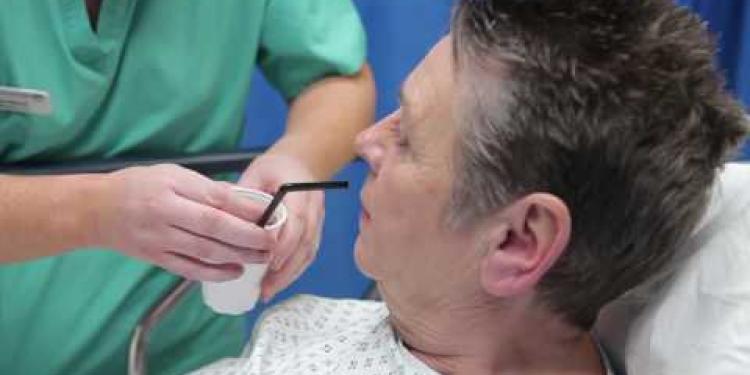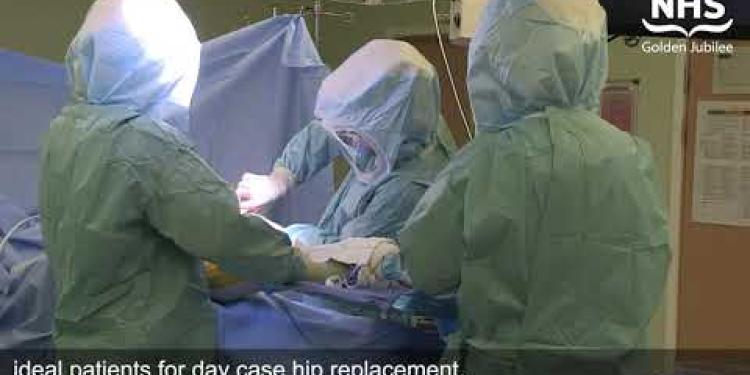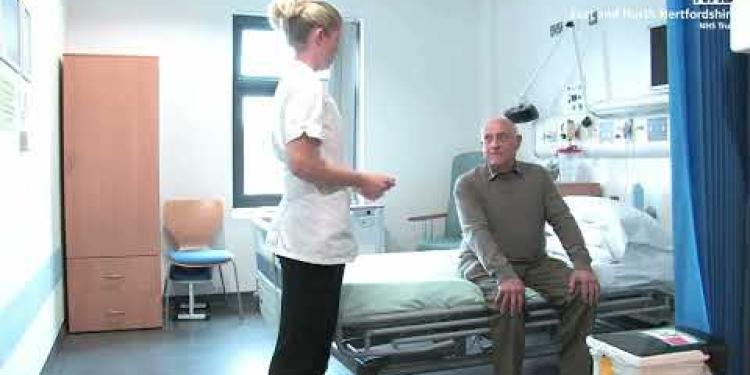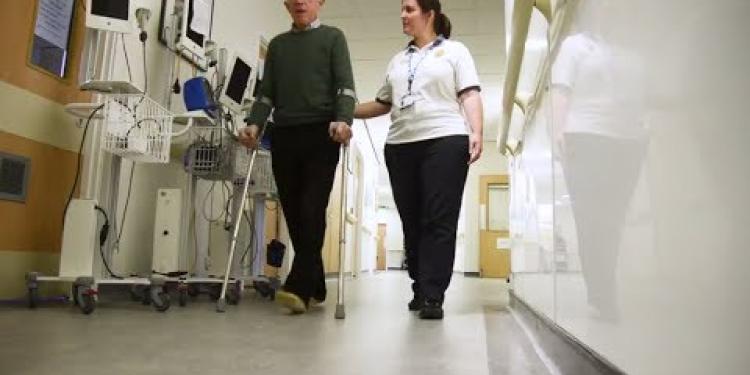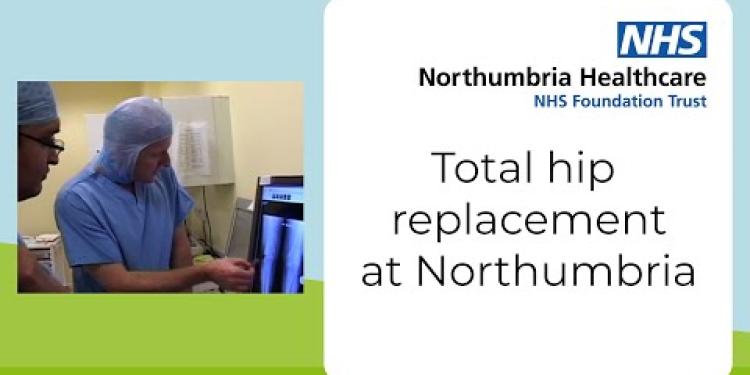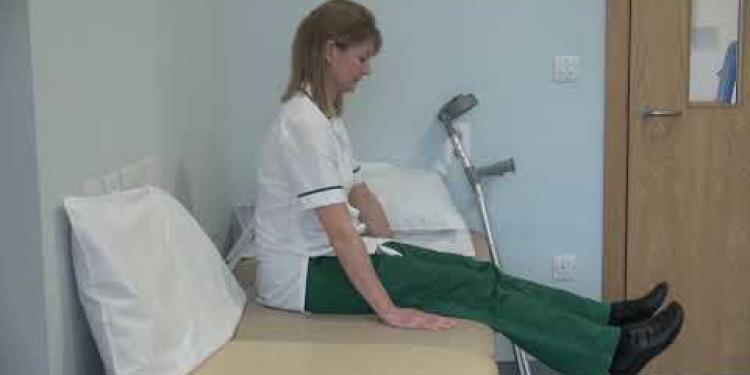Important Information On Using This Service
- Ergsy carefully checks the information in the videos we provide here.
- Videos shown by YouTube after a video has completed have NOT been reviewed by ERGSY.
- To view, click the arrow in the center of the video.
Using Subtitles and Closed Captions
- Most of the videos you find here will have subtitles and/or closed captions available.
- You may need to turn these on and choose your preferred language.
Turn Captions On or Off
- Go to the video you'd like to watch.
- If closed captions (CC) are available, settings will be visible on the bottom right of the video player.
- To turn on captions, click settings.
- To turn off captions, click settings again.
Find A Professional
More Items From Ergsy search
-
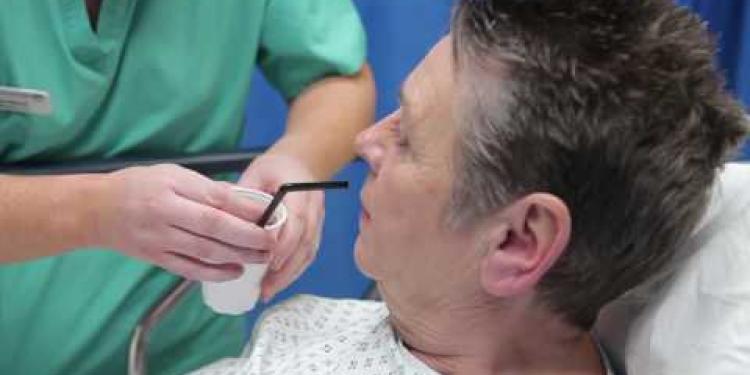
Hip replacement
Relevance: 100%
-
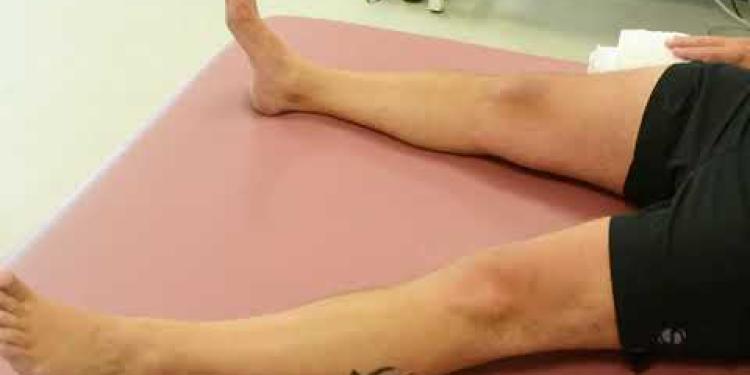
Joint School - Hip Exercises
Relevance: 99%
-
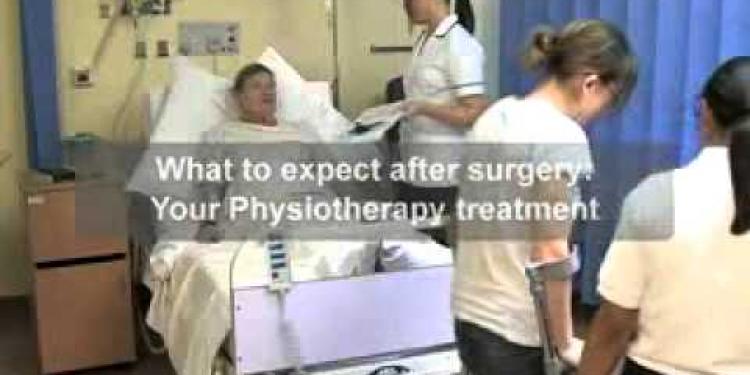
Total hip replacement
Relevance: 87%
-

Total Hip Replacement
Relevance: 85%
-
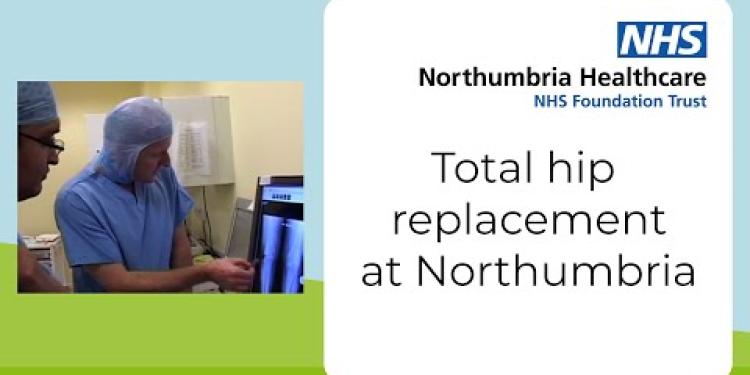
Total hip replacement at Northumbria Healthcare
Relevance: 80%
-
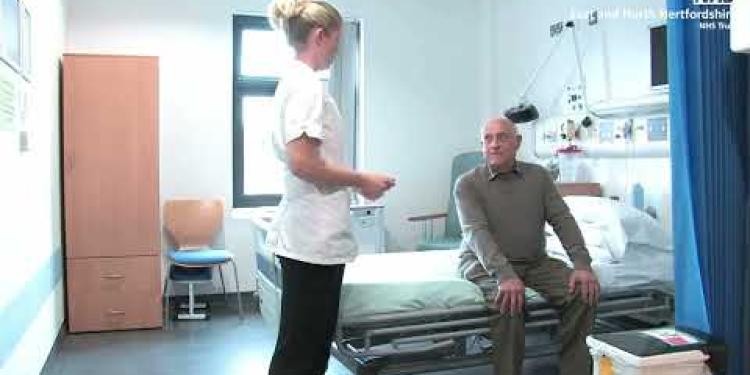
A journey to hip surgery
Relevance: 74%
-

Osteoarthritis of the Hip
Relevance: 73%
-
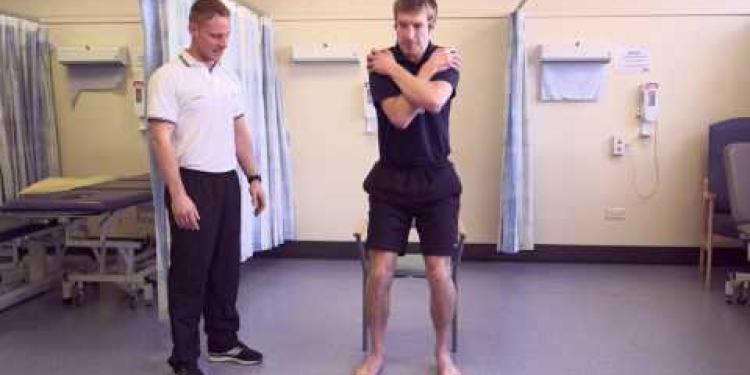
Exercises to help your lateral hip pain
Relevance: 70%
-
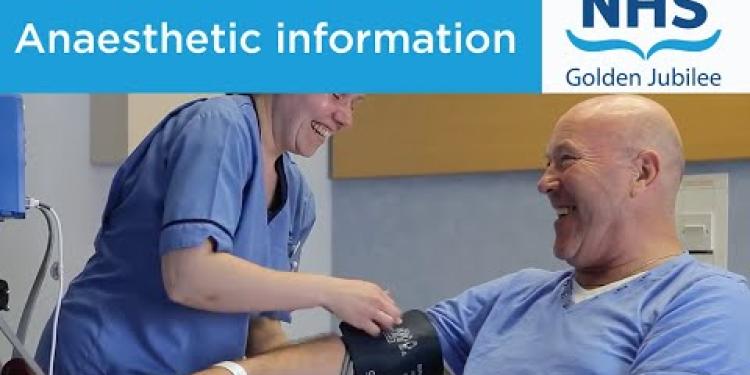
Knee replacement
Relevance: 70%
-

Osteoarthritis of the Hip
Relevance: 63%
-
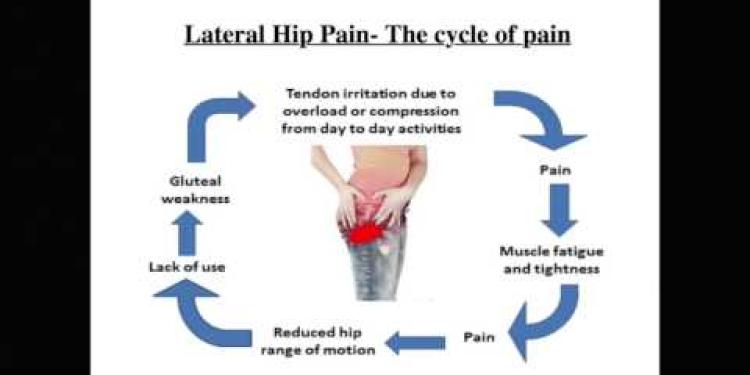
Advice - How to manage your lateral hip pain
Relevance: 61%
-

7 Signs Your Relationship is Making You Depressed
Relevance: 54%
-
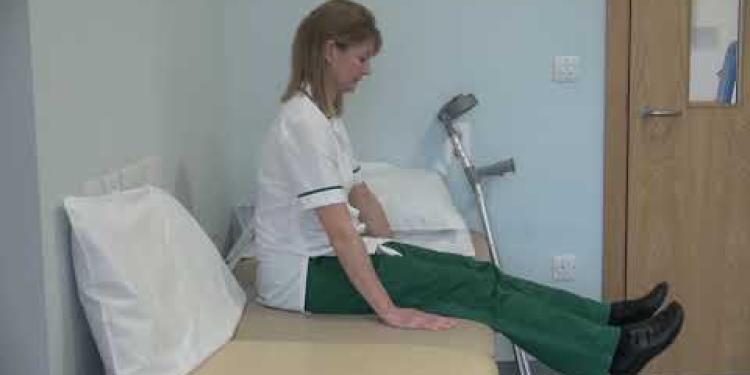
Hip replacement - getting into bed
Relevance: 53%
-

How does the new Sleep Apnea Chip work?
Relevance: 46%
-
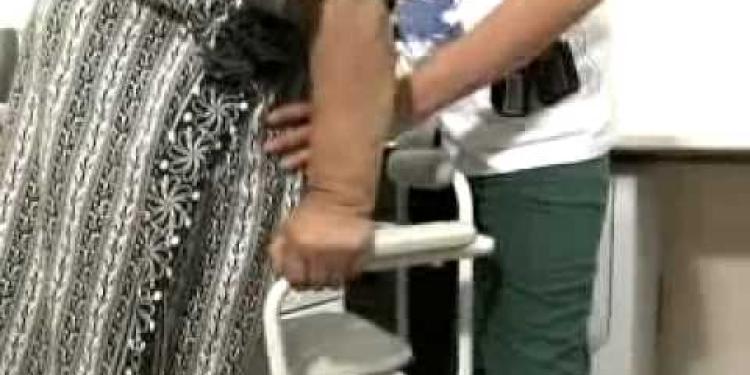
Total knee replacement
Relevance: 41%
-
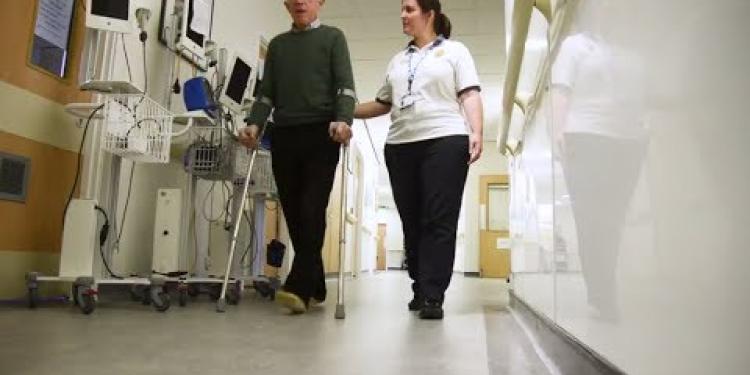
Having a hip replacement - Part Two: Recovery
Relevance: 39%
-
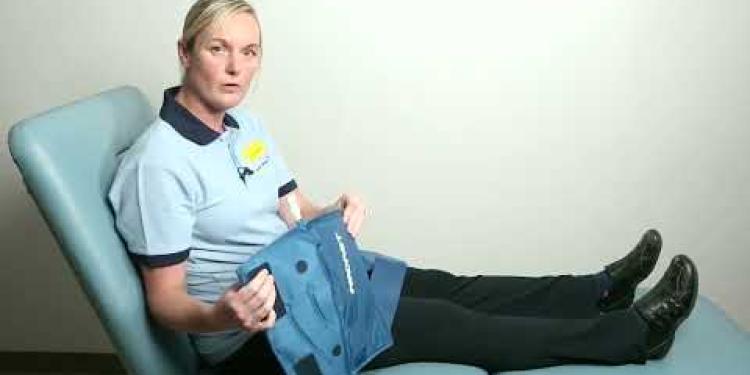
Total Knee Replacement
Relevance: 38%
-

Navigating Legal Guardianship and Parental Responsibility in the UK
Relevance: 37%
-

Greater trochanteric pain syndrome
Relevance: 36%
-

Am I eligible to try the new sleep apnea chip?
Relevance: 35%
-

First Time Buyer UK - Own Outright vs Help to Buy vs Shared Ownership
Relevance: 34%
-

Your anaesthetic choices for your planned hip or knee replacement surgery at the RUH.
Relevance: 33%
-

Advice on neck pain and whiplash
Relevance: 31%
-
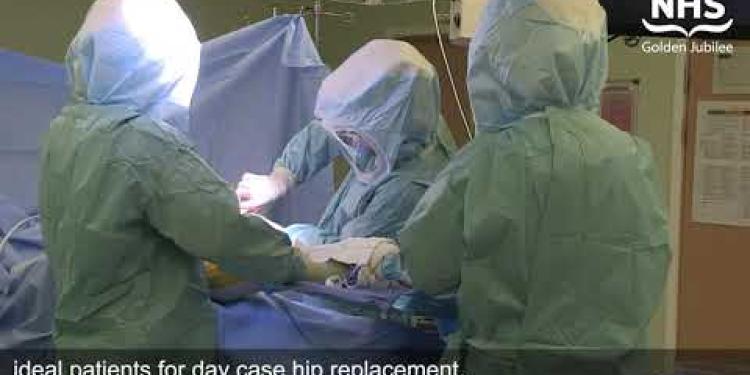
Same day discharge for NHS Golden Jubilee’s hip replacement patients
Relevance: 28%
-
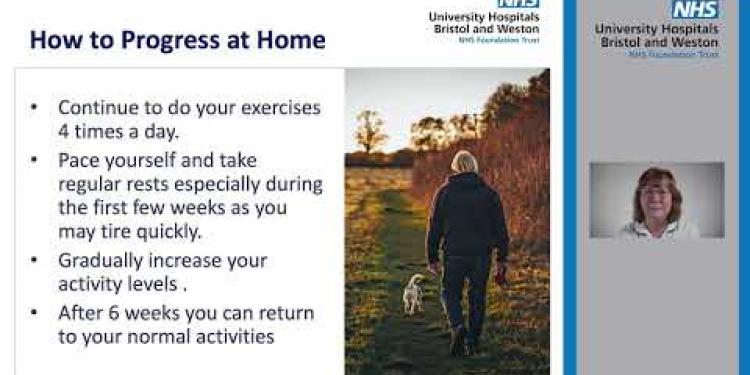
Enhanced Recovery - Hip
Relevance: 26%
-

Bowel Cancer
Relevance: 26%
-

What documents will I need to apply for a Funeral Expenses Payment?
Relevance: 16%
-

Divorce - How To Rebuild Your Life After Losing Everything
Relevance: 15%
-

8 Signs You Are Dealing with Narcissistic Abuse
Relevance: 12%
-

6 Signs of Emotional Abuse and Neglect
Relevance: 12%
-

Dementia by Dr Alex Kakoullis, Coventry and Warwickshire Partnership NHS Trust
Relevance: 11%
-

Cornea transplant patient Information
Relevance: 11%
-

Cornea transplant - Your journey
Relevance: 9%
-

Origin of Judaism - A Brief History | 5 MINUTES
Relevance: 9%
-

Danny's Story
Relevance: 9%
-

Healthy Habits for Teens
Relevance: 8%
-
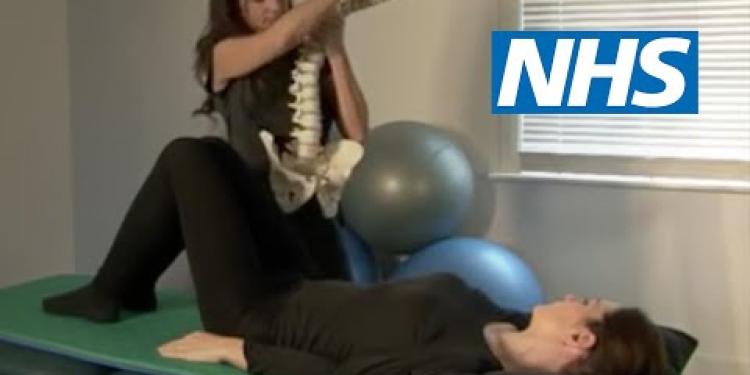
Exercises for sciatica: herniated or slipped disc | NHS
Relevance: 8%
-

Short Films About Mental Health - Personality Disorders
Relevance: 7%
-

Navigating Child Custody and Visitation Rights in Modern UK
Relevance: 7%
-

NHS Stop Smoking Support in Blackpool - What happens when you use our service
Relevance: 7%
Total Hip Replacement
Introduction
Total hip replacement, also known as hip arthroplasty, is a surgical procedure intended to relieve pain and improve function in patients with hip joint damage. It is a common orthopedic surgery in the United Kingdom, designed for patients suffering from arthritis, fractures, or other hip-related issues.
Causes and Symptoms
The primary cause of hip replacement is osteoarthritis, a degenerative joint disease that causes the cartilage to break down, resulting in pain and stiffness. Other reasons include rheumatoid arthritis, hip fractures, and avascular necrosis, where the blood supply to the hip bone is reduced. Symptoms leading to hip replacement include chronic pain, reduced mobility, and discomfort that interferes with daily activities.
The Surgical Procedure
In the UK, the total hip replacement surgery typically involves replacing the damaged hip joint with a prosthetic implant. The operation usually takes 1-2 hours and is performed under general or spinal anaesthesia. The procedure involves removing the damaged head of the femur and the hip socket and replacing them with artificial components made of metal, plastic, or ceramic.
Recovery and Rehabilitation
Recovery from total hip replacement surgery involves a hospital stay of 2-5 days. Physiotherapy begins soon after the surgery to aid in the recovery of mobility and strength. Patients are encouraged to walk with the assistance of crutches or walkers soon after the procedure. Full recovery and return to normal activities typically take 3-6 months, although this varies from person to person.
Risks and Complications
As with any surgery, there are risks associated with hip replacement surgery. These include infection, blood clots, dislocation of the implant, or wear and tear over time, which may require revision surgery. However, advances in surgical techniques and implant materials have significantly reduced these risks.
Conclusion
Total hip replacement is a highly effective procedure for relieving pain and restoring function in patients with severe hip damage. With proper care and rehabilitation, many patients in the UK enjoy a significant improvement in their quality of life. As always, it is essential to discuss the potential benefits and risks with a healthcare professional.
Total Hip Replacement
Introduction
Total hip replacement is an operation to help people with hip pain move better. Doctors do this surgery when the hip is damaged. It helps people with arthritis, broken hips, or other problems.
Causes and Symptoms
The main reason for hip replacement is osteoarthritis. This is when the hip joint gets worn out, causing pain. Other reasons include rheumatoid arthritis, broken hips, or poor blood flow to the hip. People might feel constant pain, find it hard to move, or have trouble doing daily tasks.
The Surgical Procedure
In the UK, doctors replace the bad hip joint with an artificial one. The operation usually takes 1-2 hours. The procedure involves removing the bad parts of the hip and putting in new parts made of metal, plastic, or ceramic.
Recovery and Rehabilitation
After surgery, people stay in the hospital for 2-5 days. Physiotherapy starts soon to help them move and get strong again. Patients use crutches or walkers to start walking. Full recovery can take 3-6 months but can be different for everyone.
Risks and Complications
Like any surgery, there are some risks. These include infection, blood clots, or the new joint moving out of place. But new surgery methods make these risks smaller.
Conclusion
Total hip replacement helps people with bad hip problems feel less pain and move better. If you discuss everything with your doctor, it can greatly improve your life.
Frequently Asked Questions
What is a total hip replacement?
A total hip replacement is a surgical procedure where a damaged hip joint is replaced with an artificial one, typically due to arthritis or injury.
How long does hip replacement surgery take?
The surgery usually takes between 1 to 2 hours, but the overall time at the hospital including preparation and recovery may be longer.
What materials are used in hip replacements?
Hip replacements are commonly made from metal, ceramic, or plastic components.
What are the risks associated with hip replacement surgery?
Risks include infection, blood clots, implant dislocation or wear, and differences in leg length.
How long will the hip replacement last?
Most hip replacements last between 15 to 20 years, but this can vary based on activity level and other factors.
What is the recovery time after hip replacement surgery?
Recovery time varies, but most people can return to normal activities within 3 to 6 months.
Will I be able to walk immediately after hip replacement surgery?
You will likely begin walking with the aid of a walker or crutches within a day or two after surgery.
Do I need physical therapy after a hip replacement?
Yes, physical therapy is an important part of the recovery process and helps improve mobility and strength.
Can I drive after hip replacement surgery?
You can usually start driving again 6 to 8 weeks post-surgery, depending on your recovery and if you can operate the vehicle safely.
How do I prepare for hip replacement surgery?
Preparation involves medical evaluations, stopping certain medications, arranging help at home and following pre-surgery instructions from your doctor.
Are there any alternatives to hip replacement surgery?
Alternatives include medications, physical therapy, injections, and other less invasive surgical options.
What should I expect on the day of surgery?
Expect to arrive a few hours before surgery for preparation, which includes changing into a hospital gown, meeting with the surgical team, and undergoing anesthesia.
How much does a hip replacement cost in the UK?
Costs can vary widely but on the NHS, it may be free whereas private surgery can range from £10,000 to £15,000.
What will my scar look like after hip replacement surgery?
The scar from hip replacement surgery is generally about 10-20 cm long and fades over time but may remain visible.
Can I return to sports after a hip replacement?
Many patients can return to low-impact sports like swimming, cycling, or golf after recovery, but high-impact activities should generally be avoided.
What is a total hip replacement?
A total hip replacement is an operation. It helps fix a hurt or sore hip. A doctor takes out the old hip joint and puts in a new one. The new hip joint is made of metal and plastic. This can help stop pain and make it easier to move.
If you find reading hard, ask someone you trust to read this out loud. You can also look at pictures or videos to help understand better.
A total hip replacement is an operation. Doctors take out a broken hip joint and put in a new, fake one. This usually happens because of arthritis or an injury.
How long does hip replacement surgery take?
Hip surgery is when a doctor fixes your hip. It takes about 1 to 2 hours. The doctor gives you special medicine, so you don't feel pain. If you have questions, you can ask your doctor before the surgery.
To help understand more, you can:
- Use pictures or videos about hip surgery.
- Ask someone to explain it with simple words.
- Use apps that help you understand medical words.
The surgery takes about 1 to 2 hours. But you will be in the hospital for a longer time. This is because of getting ready and resting afterward.
What are hip replacements made of?
New hips are often made from metal, ceramic, or plastic parts.
What could go wrong with hip replacement surgery?
When you have hip replacement surgery, there are some things that could go wrong. These are called risks.
- You might feel pain or stiffness.
- You could get an infection. This means germs get inside and make you sick.
- The new hip might not fit right or stop working.
- There could be bleeding inside your body.
- You might get a blood clot. This is when blood gets thick and can block blood flow.
- Your leg lengths might be different after the surgery.
If you are worried, talk to your doctor. They can help you understand and feel better.
It's important to rest and follow your doctor's advice after the surgery.
Using tools like pictures or videos can help explain what will happen. Bringing a friend or family member to talk with the doctor is a good idea too.
There are some risks. You might get an infection. Blood clots can happen. The implant might move or wear out. One leg might end up a different length than the other.
Here are some things that can help:
- Ask lots of questions to your doctor.
- Use pictures or videos to understand better.
- Take a friend or family member to appointments to help remember what is said.
How long will the new hip last?
Your new hip can last a long time. Many people have their new hip for 15 to 20 years.
To keep your hip working well:
- Move around every day. Walking is great!
- Be careful and avoid falling.
- Ask a doctor or nurse if you are worried.
Some tools can help, like:
- A walking stick or cane.
- Special shoes to help you walk safely.
- Exercises to make your legs strong.
Most new hips last 15 to 20 years. This can change if you do lots of activities or for other reasons.
How long does it take to get better after hip surgery?
Recovery time is different for everyone. Most people can start doing normal things again in 3 to 6 months.
Can I walk right after hip surgery?
No, you can’t walk right away. You will need to rest first. Then, doctors and nurses will help you start walking safely.
They have special ways to help you. They might use a walker or crutches. This is to keep you safe.
Here are some tips to help:
- Listen to your doctors and nurses.
- Use walkers or crutches to help you walk.
- Take small steps.
- Rest when you are tired.
You will probably start walking with help from a walker or crutches one or two days after your surgery.
Do I need physical therapy after a hip replacement?
After you get a new hip, doing special exercises can help you get better. These exercises are called physical therapy. Physical therapy helps your new hip work well and makes you strong.
It is important to follow the doctor’s advice and work with a therapist. They will show you easy moves to help you feel better.
Sometimes, you might use things like a walker or crutches to help you walk safely.
Taking your time and doing the exercises right will help your hip heal and get strong.
Yes, physical therapy is a big help when you are getting better. It can help you move better and get stronger.
Can I drive a car after my hip surgery?
After you have hip surgery, talk to your doctor about when you can drive again.
Your hip needs time to heal before you can drive safely.
Here are some tips to help:
- Ask your doctor when it is safe to drive again.
- Make sure you feel comfortable and strong enough.
- Practicing driving in a safe area can help.
Supportive tools can include someone to help you get in and out of the car before you drive on your own.
You can start driving again about 6 to 8 weeks after your surgery. This depends on how well you are getting better and if you can drive safely.
How can I get ready for hip replacement surgery?
What is hip replacement surgery?
Hip replacement surgery is when a doctor takes out a damaged hip and puts in a new one to help you move better and feel less pain.
How to get ready:
- Talk to your doctor: Ask them what will happen during surgery and what you need to know.
- Eat healthy foods: Eating well helps your body stay strong.
- Exercise: Gentle exercises can make your body fit and ready.
- Stop smoking: If you smoke, try to stop. It can help you heal better.
- Ask for help: Talk to family or friends about helping you after surgery.
Tools that can help:
Using a planner or checklist can remind you of what to do. You can also draw pictures or use apps to help you understand better.
Getting ready for surgery means seeing the doctor, stopping some medicines, getting help at home, and listening to your doctor’s instructions before the surgery.
Are there different ways instead of hip replacement surgery?
There are different ways to feel better. You can take medicine. You can do exercises with a therapist. You can have special shots. There are also some surgeries that are easier for your body. You can try these too.
What will happen on the day of surgery?
Get to the hospital a few hours before your surgery. You will get ready by changing into a hospital gown. You will meet the team who will do your surgery. You will also get medicine to make you sleep during the surgery.
If it helps, bring along a favorite book or toy to help pass the time while you wait. A friend or family member can stay with you too.
How much does it cost to get a new hip in the UK?
Getting a new hip is called hip replacement. It costs money in the UK.
Here is how you can find out the cost:
- Talk to your doctor. They can tell you more.
- Look online for information from trusted health websites.
It might help to have someone read with you or use a reading tool.
The cost of surgery can be different. If you use the NHS, it can be free. But if you go private, it can cost between £10,000 and £15,000.
What will my scar look like after hip replacement surgery?
A scar is a mark left on your skin after surgery. After hip replacement surgery, you will have a scar on your hip where the doctor made a cut.
Here is what you can expect your scar to look like:
- At first, the scar might be red or pink and a bit swollen.
- Over time, it will become lighter and less noticeable.
- The scar’s size can be different for everyone. It might be a few inches long, running down the side of your hip.
- It might feel hard or bumpy at first, but it will get softer with time.
Tips for taking care of your scar:
- Keep it clean and dry.
- Use moisturizing lotion to help it heal.
- Ask your doctor if you can use scar creams or gels.
- Try not to scratch or pick at it.
- Protect it from the sun by wearing clothes over it or sunscreen.
If you have questions or worries, talk to your doctor or nurse.
The scar from hip replacement surgery is usually about as long as a large ruler - between 10 to 20 centimeters. The scar might fade and become lighter over time, but you might still be able to see it.
Can I play sports after a new hip?
If you had your hip fixed, you might want to play sports again. This can be possible, but first, talk to your doctor. They will say if it's safe for you.
Here are some tips to help you:
- Start slowly. Take small steps when you start.
- Do easy exercises. Try walking or swimming.
- Listen to your body. Rest if you feel pain.
- Use tools to help you. Knee pads or braces might keep you safe.
Remember, always ask your doctor. They know what's best for you.
After getting better, many people can go back to doing gentle sports like swimming, riding a bike, or playing golf. But they should try not to do sports where you hit the ground hard, like playing football or running.
Useful Links
Useful links from: Hip replacement
- NHS - Hip Replacement Comprehensive guide from the NHS covering hip replacement surgery, including when it's needed, how it's performed, risks, recovery, and aftercare.
- Arthritis Research UK - Hip Replacement Information from Versus Arthritis on hip replacement surgery, why it’s needed, what to expect during the procedure, and recovery tips.
- British Hip Society Patient information on hip replacement and other hip-related surgical procedures, provided by the British Hip Society.
- Age UK - Hip Replacement Advice and support from Age UK for older adults considering or recovering from hip replacement surgery, including fitness tips and well-being advice.
Useful links from: A journey to hip surgery
- NHS - Hip Replacement The official NHS page providing comprehensive information about hip replacement surgery, including reasons for the procedure, how it is performed, recovery tips, and potential risks.
- Versus Arthritis Versus Arthritis offers detailed information on hip replacement surgery, including the procedure, preparation, recovery, and personal stories. It also covers how the surgery can help with arthritis pain and mobility.
- Arthritis Action - Hip Surgery Arthritis Action provides insights and advice on hip replacement surgery, covering how to prepare for the operation, what to expect during recovery, and post-surgery care to manage arthritis.
- Age UK - Hip Replacement Surgery Age UK offers a guide on hip replacement surgery specifically tailored for older adults, including what to consider before surgery, recovery tips, and how to manage daily activities post-surgery.
Useful links from: Having a hip replacement - Part Two: Recovery
- NHS: Recovering from hip replacement surgery This NHS page provides detailed information on what to expect and how to manage recovery after hip replacement surgery, including advice on mobility, pain management, and resuming daily activities.
- Versus Arthritis: Hip Replacement - Recovery Versus Arthritis offers guidance on recovering from hip replacement surgery, covering physiotherapy, exercises, and lifestyle adjustments to help with recovery.
- Royal College of Surgeons: Recovery from hip replacement surgery The Royal College of Surgeons provides a detailed guide on recovering from hip replacement surgery, including tips on managing pain, expected milestones, and precautions.
- Age UK: Hip Replacement Recovery Advice Age UK's guide covers recovery from hip replacement surgery for older adults, offering tips on physiotherapy, home adaptations, and managing daily life during the recovery period.
Useful links from: Total hip replacement at Northumbria Healthcare
- Northumbria Healthcare NHS Foundation Trust Find comprehensive information about hip replacement services, patient resources, and recovery information provided by Northumbria Healthcare NHS Foundation Trust.
- NHS - Hip Replacement The official NHS page detailing hip replacement surgery, including indications, how it is performed, recovery, and risks involved.
- Versus Arthritis - Hip Replacement Versus Arthritis offers detailed insights into hip replacement surgery, preparation, post-operative care, and patient stories.
- Age UK - Hip Replacement Age UK provides advice and information on hip replacement surgery, especially tailored for older adults, covering pre-surgery preparation and recovery tips.
Useful links from: Total Hip Replacement
- NHS - Total Hip Replacement The NHS official page on hip replacement, covering information about the procedure, risks, recovery, and alternatives.
- Versus Arthritis - Hip Replacement Surgery Versus Arthritis provides an in-depth guide on hip replacement surgery, including what to expect before, during, and after the operation.
- Arthritis Action - Total Hip Replacement Arthritis Action offers detailed advice and support on living with arthritis, including information on hip replacement surgery.
- The British Hip Society - Patient Information The British Hip Society provides resources and information for patients undergoing hip replacement surgery, including FAQs and recovery tips.
Useful links from: Hip replacement - getting into bed
- NHS - Getting in and out of bed after hip replacement Guidance from the NHS on how to safely get in and out of bed following a hip replacement, including useful techniques and tips.
- Versus Arthritis - Hip Replacement Surgery Versus Arthritis provides comprehensive information on hip replacement surgery, including recovery tips and how to manage daily activities like getting into bed.
- Age UK - Hip replacement recovery guide Age UK's guide offers detailed advice on recovering from a hip replacement, including practical tips for getting in and out of bed, and adjusting to home life post-surgery.
- NHS Inform - Recovering from hip replacement surgery NHS Inform provides detailed information on the recovery process after hip replacement surgery, including advice on getting in and out of bed and other mobility tips.
More Videos of Interestdiagnosis
Have you found an error, or do you have a link or some information you would like to share? Please let us know using the form below.
- Ergsy carfully checks the information in the videos we provide here.
- Videos shown by Youtube after a video has completed, have NOT been reviewed by ERGSY.
- To view, click the arrow in centre of video.
- Most of the videos you find here will have subtitles and/or closed captions available.
- You may need to turn these on, and choose your preferred language.
- Go to the video you'd like to watch.
- If closed captions (CC) are available, settings will be visible on the bottom right of the video player.
- To turn on Captions, click settings .
- To turn off Captions, click settings again.
